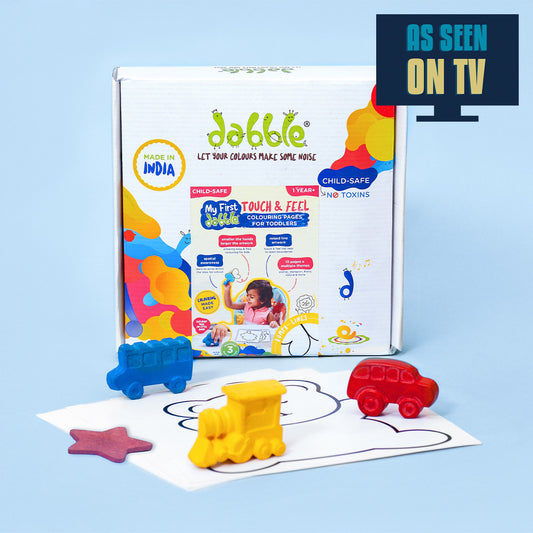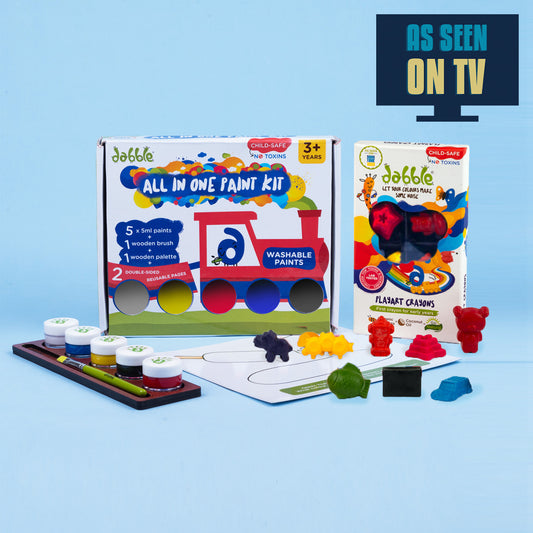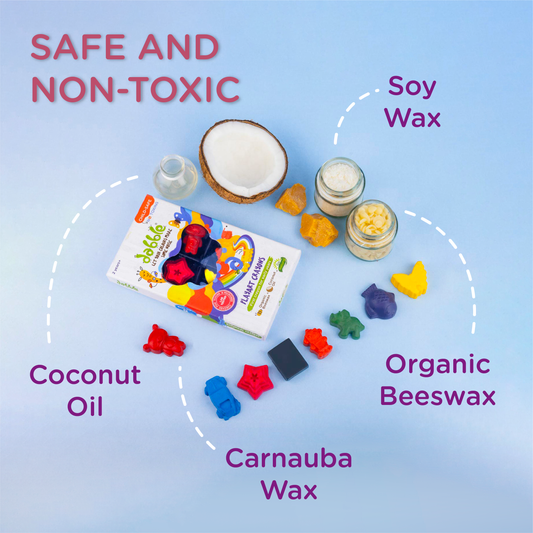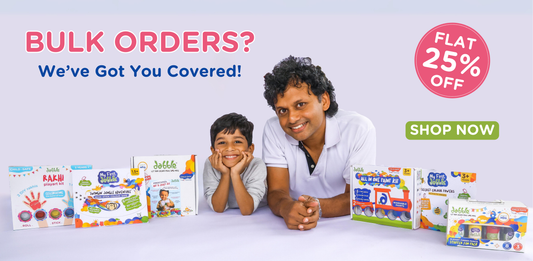Brushstrokes of Childhood: Balancing Values, Learning & Play
- PRIYANKA THAPLIYAL Scribble Mama
I’m a mother to an almost 6 year old who is right in the middle of that phase where every school decision feels monumental.
Do we go with CBSE, ICSE, IGCSE, or IB?
Are we overthinking it? Or are we not thinking enough?
Will this one choice shape her future or squash her spirit?
Like many parents, my husband and I come from different schools of thought. So here I am, in the thick of the dilemma, hoping that by writing this, I’ll find some clarity and maybe some of you will too.
This Saturday I was staring at the three school brochures in hand:
CBSE: Strong on fundamentals
ICSE: Balanced and rich in detail
IB/IGCSE: Research focused and global outlook
Each promised excellence. But none addressed the one question tugging at my heart:
"Will my child still have time to do art, music, or paint?" because she loves doing it now.
"Will she be taught to care, to reflect, to belong — not just to the world, but to her roots?"
Because behind the numbers and curriculum comparisons lies a quieter, deeper concern:
Will she grow into a kind, grounded, emotionally intelligent person?
What’s Really Happening Inside Schools
By 5 or 6, schools dive into academics.Letters, numbers, worksheets, all lined up like a race.
The arts? Morals? Culture? Emotions? They’re squeezed in if at all through a token celebration, a Friday activity, or a “values corner” that few remember.
We’re told:“Art isn’t academic”, “Morals are taught at home.”
“We have too much syllabus to cover.”
But children don’t compartmentalize like adults do.
For them, a story from the Ramayana or a folk dance or a story teaches not just language or movement or — but courage, empathy, belonging and joy
We want our children to thrive, to be smart and skilled. But also to be gentle, empathetic, and rooted.
The Science Supports This Too
Harvard’s Center on the Developing Child says that Emotional well-being is the strongest predictor of adult success.
Oxford research (2017)says that children exposed to moral stories show better decision making and higher empathy.
Neuroscience confirms that arts and emotional learning create stronger neural connections than rote memorization.
Art and value-based learning aren’t "extras." They are the brain shaping tools.
Reconnecting to Culture Through Education
Home is where it begins. But school is where it breathes and becomes real.
When children learn a classical dance and feel their body carry tradition —they’re not just learning. They’re feeling seen. Culture isn’t about festivals. It’s about creating meaning in everyday learning. Values aren’t lectures. They’re lived practices — how we treat classmates, respond to failure, or help a friend.
What Actually Works
The best schools aren’t just focused on how children learn — but who they become while learning. They weave arts, values, emotions, and academics into a single thread.
When math is taught through beads, peanuts, sticks, patterns, or moral science through theatre — it sticks. It stays.
So, CBSE, ICSE or IB?
Truthfully? There’s no perfect board. But there is the right approach.
Ask not just about infrastructure and marksheets.
Ask:Is storytelling a daily ritual or just for library week?
Do they celebrate regional art forms or only international days?
Are children encouraged to reflect, question, and connect to their roots?
Because education isn’t just about where your child is going. It’s also about where they’re coming from.
Tips for Parents to Overcome the Dilemma
1. Look Beyond the Board : A traditional board delivered with warmth, creativity, and moral grounding is better than a “progressive” board delivered with pressure.
2. Choose Holistic Environments : Visit schools. Watch how teachers speak to children. Observe the art on walls. Ask about rituals, story sessions, and emotional development programs.
3. Balance Begins at Home: Create space for both tradition and freedom. Light a diya, tell a story from your childhood, let your child paint their version of it. Use tools like Dabble kits to foster open exploration with emotional depth.
4. Redefine “Success” - It’s not just high scores — it’s high self-worth, compassion, and belonging.
5. Let Them Be : Your child might quote a saint before they solve a word problem. That’s not delay — that’s depth. Respect it.
Final submission is here that Let’s not raise children who know everything — but feel nothing. Each child is unique and let us celebrate their uniqueness.
Let us not lose the song, the soul, and the story in the chase for scores. So if your 6 year old still loves puppets, mythologies, or scribbling over solving - you’re not falling behind. You’re staying human.
Because the real education is this:
How to think boldly, Feel deeply, Live kindly
, And grow — not apart from culture, but with it.
- PRIYANKA THAPLIYAL






